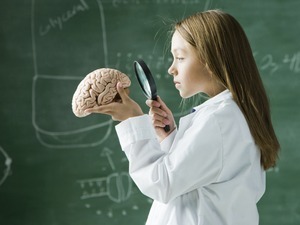Posts Tagged ‘neurobehavioral’
Beyond helmets: concussions require proactive, individualized monitoring and rehab
New Concussion Guidelines Stress Individual Treatment (The New York Times): “The American Academy of Neurology said Monday that it had revised its guidelines for handling concussions to emphasize treating athletes case by case rather than according to a predetermined scale…In noting that more than a million American athletes
Read MoreWhy Being Young for Grade Increases Odds of ADHD Diagnosis and Stimulant Medication
ADHD is the most commonly diagnosed neurobehavioral disorder in children and substantial evidence indicates that biological factors play an important role in its development. For example, although the exact mechanism by which genetic factors convey increased risk for ADHD remains unclear, the importance of genetic transmission has been documented in a number of published studies.…
Read MoreA Controlled Trial of Herbal Treatment for ADHD
Results from randomized-controlled trial of a compound herbal treatment for ADHD clearly indicate significant improvement on an objective measure of sustained attention and impulsive responding.
Read MoreYour Trading Brain: Expert or Novice
All trading strategies and decision making are brain-based synaptic strategies. The human brain has an infinite capacity to change, organize and reorganize itself, progression to trading excellence is possible.
Read MoreCognitive training research: MindFit, Lumosity, Posit Science, Cogmed
The field of computer-based cognitive training (part of what we call “Brain Fitness”) is starting to get traction in the media and becoming an emerging industry, and we are happy to see how a growing number of researchers and science-based companies are leading studies that will allow to better measure results and refine the brain exercise…
Read More

